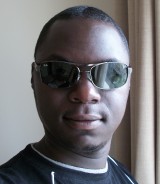History of Lena
This image is called Lena. It is a standard test image widely used in the field of image processing since 1973, and is considered to be one of the most used images in computer history.

You’ll find it almost everywhere in the image processing world: from technical papers hosted by IEEE and standards organizations like IETF, ETSI and ISO, to the source code and documentation for popular technologies like JPEG and PNG (and by extension, most software that uses them), to MatLab samples, to scientific publications and scholarly articles on geeky topics like Phase Correlation and Fourier-Mellin Transform. Everywhere. If a test image is needed, Lena will be there.
Few people ever ask who the lady is and where the photo is from, which is a good thing. Why? Well, the source is a bit controversial.
You see, that image is a crop of a picture of Lena Söderberg, shot by photographer Dwight Hooker, cropped from the centerfold of the November 1972 issue of Playboy magazine. She was completely nude in the centerfold, nude like the day she was born – except for the hat, of course.
Quote:
Alexander Sawchuk estimates that it was in June or July of 1973 when he, then an assistant professor of electrical engineering at the University of Southern California Signal and Image Processing Institute (SIPI), along with a graduate student and the SIPI lab manager, was hurriedly searching the lab for a good image to scan for a colleague’s conference paper. They got tired of their stock of usual test images, dull stuff dating back to television standards work in the early 1960s. They wanted something glossy to ensure good output dynamic range, and they wanted a human face. Just then, somebody happened to walk in with a recent issue of Playboy.
The engineers tore away the top third of the centerfold so they could wrap it around the drum of their Muirhead wirephoto scanner, which they had outfitted with analog-to-digital converters (one each for the red, green, and blue channels) and a Hewlett Packard 2100 minicomputer. The Muirhead had a fixed resolution of 100 lines per inch and the engineers wanted a 512×512 image, so they limited the scan to the top 5.12 inches of the picture, effectively cropping it at the subject’s shoulders.
Lena is so widely accepted in the image processing community that Lena Söderberg was a guest at the 50th annual Conference of the Society for Imaging Science and Technology (IS&T) in 1997. In a 1999 issue of IEEE Transactions on Image Processing, the Lena image was used in three separate articles. Lena is still used widely today, so much so that in September 2013, Jeff Seideman of the Society for Imaging Science and Technology worked with Playboy to rescan the image from the original negatives.
Now you know.

Quick Links
Popular Articles
Other Content
Donations
Kindly make a donation via PayPal to keep the projects going.

